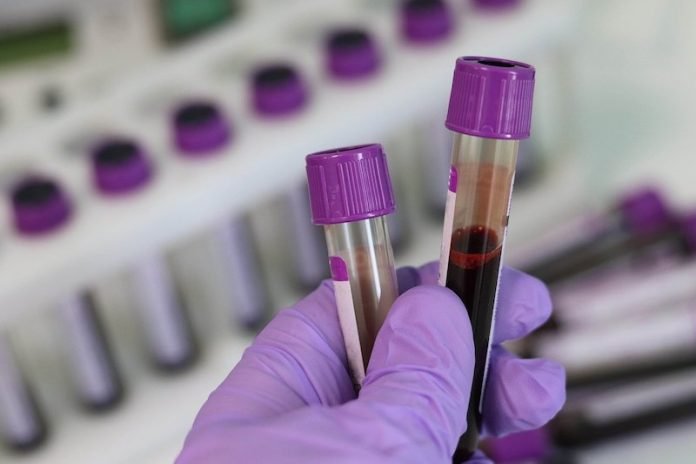
In a new study, researchers found a common immune signature in the blood of patients with COVID-19, which could be used to predict how severely ill a patient will become, thereby aiding patient management.
The research was conducted by a team at the Francis Crick Institute and elsewhere.
The team analyzed blood samples from 63 patients with SARS-CoV-2, the virus that causes COVID-19, who were treated at Guy’s Hospital and St Thomas’ Hospital, London.
Among several molecules expressed at atypical levels in the blood of patients, the researchers identified three, in particular, that could indicate how the disease will progress—what the researchers are calling the “triad,” made up of IP-10, interleukin-10, and interleukin-6.
Patients with COVID-19 who displayed measurably higher levels of these molecules when first admitted to the hospital went on to become more severely ill.
The triad was found to be a rigorous predictor of disease severity than commonly-used clinical indicators, including C-reactive protein (CRP), D-dimer, or ferritin.
In addition, they found that within their patient cohort, measuring levels of IP-10 in blood taken on the first day in the hospital was the most accurate way to date of predicting how long the patient would remain in hospital.
The researchers are now looking to new collaborators to help develop robust, easily applied tests for these molecules.
This work is part of the ongoing COVID-IP study. Since their preliminary analysis carried out in May, the team has now compared the immune signatures of COVID-19 patients with 10 age-matched patients who had non-COVID-19 lower respiratory tract infections.
They found that high levels of the triad were not seen in those patients, suggesting this feature, in combination with other traits, may form a core COVID-19 immune signature.
As well as continuing to monitor the immune response of patients in the hospital, the team is also using these blood samples to gain further insights into the disease and to understand and improve long-term health outcomes for patients who were hospitalized with COVID-19.
One author of the study is Adrian Hayday.
The study is published in Nature Medicine.
Copyright © 2020 Knowridge Science Report. All rights reserved.



